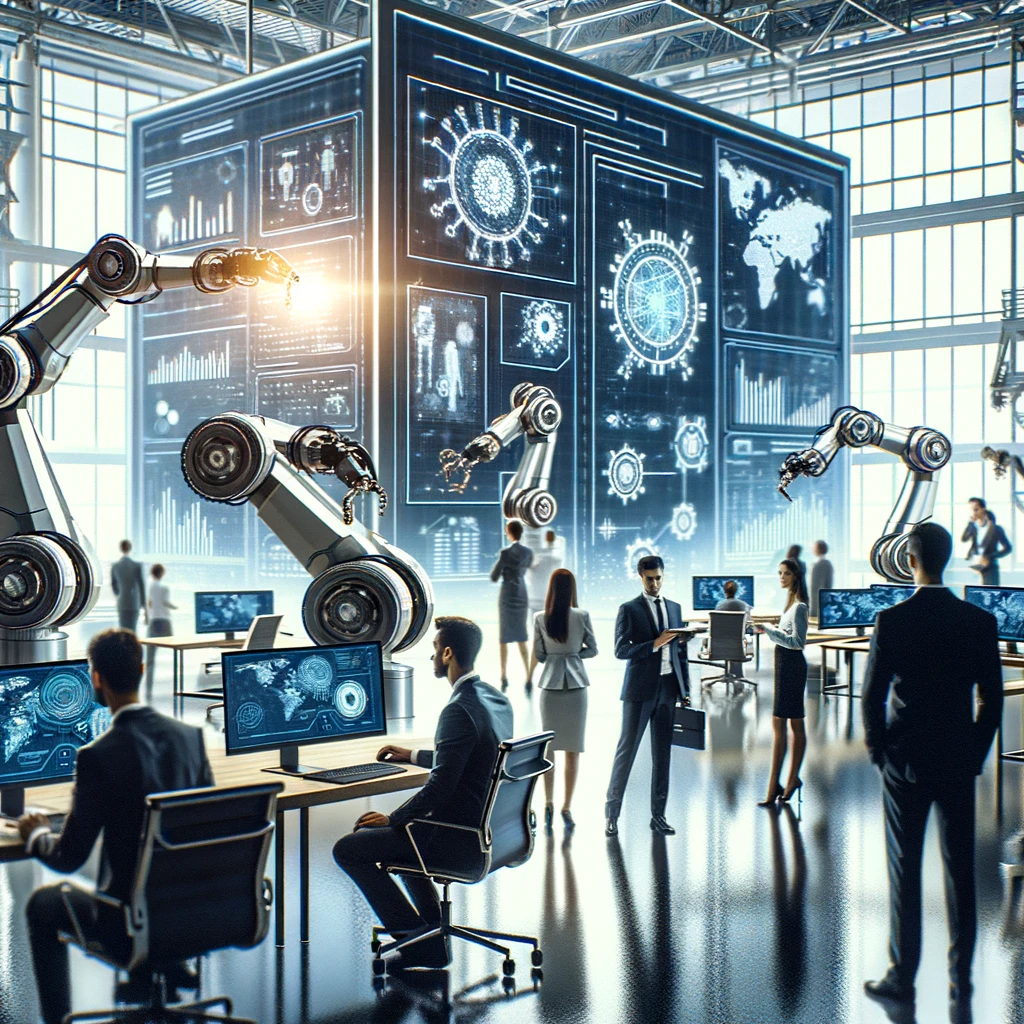Introduction to Intelligent Automation Services
Intelligent Automation (IA) combines the power of artificial intelligence (AI) with automation technologies to transform business processes, enhance efficiency, and foster innovation. As businesses seek to streamline operations and deliver superior customer experiences, intelligent automation emerges as a pivotal technology, driving significant improvements across various industries.
The Evolution of Automation to Intelligent Automation
Automation has been a part of business operations for decades, focusing primarily on mechanizing repetitive tasks. However, the integration of AI has elevated traditional automation to what is now known as intelligent automation. This evolution represents a shift from rule-based automation to systems capable of learning and adapting, marking a significant milestone in the journey toward more dynamic and intelligent business processes.
Core Technologies of Intelligent Automation
- Robotic Process Automation (RPA): RPA tools automate repetitive tasks by mimicking human actions. They are particularly effective for tasks involving structured data and rule-based processes.
- Artificial Intelligence: AI brings capabilities such as machine learning, natural language processing, and computer vision to intelligent automation, enabling systems to handle unstructured data and make context-aware decisions.
- Machine Learning: Machine learning algorithms improve over time, learning from past decisions and data to optimize processes without human intervention.
Intelligent Automation in Various Sectors
Intelligent automation finds applications across numerous sectors:
- Healthcare: Streamlining administrative tasks, patient data management, and predictive diagnostics.
- Finance: Automating risk assessments, compliance monitoring, and customer service interactions.
- Manufacturing: Enhancing supply chain management, predictive maintenance, and quality control.
- Retail: Personalizing customer experiences, managing inventory, and optimizing logistics.
Benefits of Intelligent Automation
The adoption of intelligent automation brings myriad benefits:
- Increased Efficiency: Automation of repetitive tasks frees up human resources for more complex and strategic activities.
- Enhanced Accuracy: Reduces the likelihood of errors associated with human intervention.
- Scalability: Systems can be scaled up or down based on demand without the need to hire or train additional staff.
- Improved Customer Satisfaction: Faster response times and 24/7 service capabilities enhance customer experiences.
Implementing Intelligent Automation in Your Business
To effectively implement intelligent automation, businesses should follow these steps:
- Identify Key Areas for Automation: Analyze processes to find areas where automation can have the most significant impact.
- Choose the Right Tools: Select software and tools that best fit the identified processes and business goals.
- Pilot Testing: Run pilot tests to gauge the effectiveness of automation in real-world scenarios.
- Training and Support: Train staff to work with new systems and establish a support framework to address any issues.
- Scale Gradually: Start with small, manageable segments before expanding automation across the organization.
Challenges and Considerations
While the benefits are significant, there are challenges to consider:
- Integration Complexity: Integrating new technologies with existing systems can be complex and resource-intensive.
- Workforce Impact: There is potential resistance from employees who may feel threatened by automation technologies.
- Ongoing Maintenance: Intelligent automation systems require continuous monitoring and maintenance to ensure optimal performance.
Future Trends in Intelligent Automation
The future of intelligent automation is promising, with several trends shaping its trajectory:
- Advancements in AI and Machine Learning: As these technologies advance, intelligent automation will become more sophisticated and capable.
- Increased Adoption Across Sectors: More industries will embrace intelligent automation as its benefits become more widely recognized.
- Ethical AI Use: There will be a greater focus on developing and implementing AI within ethical guidelines to prevent bias and ensure fairness.
Conclusion
Intelligent automation is revolutionizing how businesses operate, offering significant advantages in efficiency, accuracy, and innovation. By understanding and embracing this technology, organizations can position themselves at the forefront of their industries, ready to meet the challenges of the modern business environment.
FAQs
- What is intelligent automation?
- Intelligent automation refers to the integration of artificial intelligence technologies, such as machine learning and natural language processing, with traditional automation tools to enhance business processes.
- How does intelligent automation differ from traditional automation?
- Unlike traditional automation, which relies on predefined rules and repetitive tasks, intelligent automation can learn from data, make decisions, and adapt to new situations without human intervention.
- What are the primary benefits of implementing intelligent automation?
- The primary benefits include increased efficiency, enhanced accuracy, scalability of operations, and improved customer satisfaction.
- What challenges might a company face when implementing intelligent automation?
- Challenges include the complexity of integrating new technologies with existing systems, potential workforce resistance, and the need for ongoing maintenance and optimization of automation systems.
- What future trends are expected in the field of intelligent automation?
- Future trends include further advancements in AI and machine learning, broader adoption across various industries, and a heightened focus on the ethical use of AI technologies.

